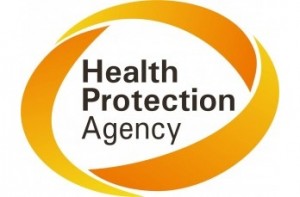The Health Protection Agency’s annual conference, Health Protection 2011, held at the University of Warwick yesterday, revealed to delegates that raw bean sprouts were identified as the main vehicle of transmission in a national outbreak of Salmonella Bareilly food-poisoning.
There have been 241 cases of S. Bareilly reported in England, Scotland, Wales and Northern Ireland between August and December 2010. One of the patients has died.
 |
| [relatedPosts title=”Related Posts”] |
|
|
Dr. Paul Cleary, Regional Epidemiologist with HPA North West who led the epidemiological investigations on behalf of a multi-agency outbreak control team, said: “It became apparent early in the investigation, largely as a result of a national case control study, that bean sprouts were significantly associated with the transmission of infection. These early findings were confirmed when Salmonella Bareilly isolated from bean sprout samples in England and Scotland was found to be indistinguishable from isolates from the human cases.”
The publication of the outbreak control team’s report on the outbreak, describes how the authorities first became aware of the situation when there was an outbreak of food-borne illness following a wedding reception in North Manchester. It soon became apparent that there was also an outbreak in Scotland and sporadic cases throughout England and in Wales and Northern Ireland.
Laboratory tests confirmed that the outbreak strains of S. Bareilly in Manchester and Scotland were indistinguishable from each other, and also indistinguishable from the sporadic cases elsewhere in England and Wales.
Investigations by EHOs and the HPA’s Food, Water and the Environment (FW & E) Laboratory in Preston led to the conclusion that the implicated bean sprouts had been grown from contaminated seeds that had been imported to the UK.
“Once we established that bean sprouts were the probable vehicle of transmission, our main interventions were to give advice to the public and, through environmental health professionals, to bean sprout growers, wholesalers, retailers and catering establishments,” Dr. Cleary said.
“A key focus was to ensure that the labelling on packs of bean sprout and salad vegetables containing bean sprouts was clear and unambiguous. Our colleagues at the Food Standards Agency worked with the seeded sprout growers, wholesalers and retailers through the local authority EHO network to ensure that labelling that could have been misleading, such as “washed and ready for use”, was changed to “washed and ready to cook”, to cite one example.”
Chairman of the multi-agency outbreak control team, HPA regional director, Dr. Joe Kearney said: “The fact that we discovered a probable association with bean sprouts so early in the investigation enabled our colleagues at the FSA to issue timely advice to the catering industry. This advice was repeated and strengthened as the evidence linking contaminated bean sprouts to the outbreak became stronger. At the same time, we gave important information to the public through the news media. “Our key message was and continues to be that bean sprouts are safe to eat provided that they are washed and cooked through until they are piping hot, unless they are clearly labelled as ready-to-eat. Raw and undercooked bean sprouts can potentially pose a risk to health.”
Further Information on the S. Bareilly Outbreak:-
To view the presentation abstract, click here.
The outbreak control team was composed of representatives from the HPA’s Health Protection and Microbiology Services, Health Protection Scotland, the Food Standards Agency and EHOs from a number of local authorities.
This outbreak was not related to the outbreaks in Germany or France earlier this year which were caused by a different strain of E. coli called O104.
The report of the outbreak can be accessed here.
Information on Salmonella is available on the Health Protection Agency’s website. click here:
Summary of the FSA advice with regards to bean sprouts :-
• Bean sprouts should be cooked until piping hot unless they are labelled as ready-to-eat.
• As a precautionary measure it is advised that even bean sprouts labelled as ready-to-eat should be thoroughly cooked if they are to be served to young children, elderly people, people with impaired immune systems and pregnant women.
• People who prepare meals in catering establishments and in the home should keep raw bean sprouts separate and apart from other salad produce, including bean sprouts that are labeled as ready-to-eat, to avoid the risk of cross-contamination.
• If this advice is followed bean sprouts will be safe to eat.
It is critically important for people to wash their hands before eating or preparing food; after handling raw meat or poultry; after using the toilet; after changing nappies or cleaning up after others with diarrhoea. Hand-washing after contact with animals is essential. Children who have touched animals should be supervised when washing their hands.
The FSA advice on the safe preparation of bean sprouts may be accessed here.




